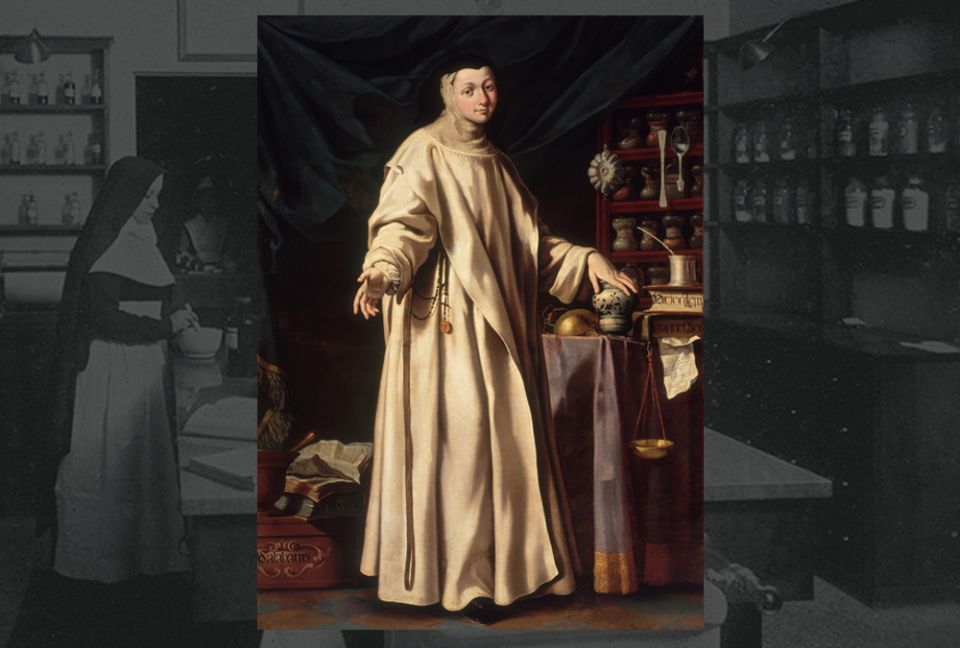The coronavirus pandemic isn't the first global health crisis. Few people today were alive in 1918, when a deadly flu strain killed at least 50 million people around the world. Plagues and other crises have threatened people throughout history. Unlike wars, elections and other events, however, pandemics often fade from human memory. Maybe that's because there are no clear winners or losers. Health crises don't lead to the redrawing of maps or the erecting of statues. The causes and effects often are forgotten, at least until the next crisis.
People living today, as well as future generations, will remember the year 2020 because of the devastating effects that coronavirus is having on the world. Broader use of technology will ensure a more permanent record of this pandemic's statistics, sacrifices and solutions. Heroes will be celebrated, and their stories will inspire tomorrow's students. Catholic sisters were humble heroes in the 1918 pandemic. The love with which they served can transform our perspective on charitable gifts and efforts, sparking a new wave of selfless service today.
Students should have something to write with, whether that's pen and paper or a computer. This activity can be as simple or involved as your time and resources allow.
Begin by saying: "I'm going to read the names of four people connected to historical moments within the last 80 years. If you know their significance, raise your hand and tell me." [proceed quickly and don't allow for internet searches]
- Eroni Kumana
- Katherine Johnson
- Ruby Bridges
- Todd Beamer
Affirm any correct guesses. Then choose from these options, or create one for your learners.
Option 1: Quick histories
If you're limited on time or resources, share these brief biographies with your students. Begin by saying, "Each of these people played an important role in history, though not many people know their names or stories:"
- Eroni Kumana and his friend Biuku Gasa were islanders living in the Pacific Ocean in 1943 when they played a crucial role in the rescue of 11 U.S. Navy sailors whose boat was sunk by an enemy ship. That crew's leader, Lt. John F. Kennedy, went on to become president of the United States.
- Katherine Johnson was a mathematician who worked for NASA, the U.S. space agency, for 35 years. Before computers were developed, she and other African-American women did the math that helped get American astronauts into space, into orbit, on the moon and safely home.
- Ruby Bridges was only 6 years old in 1960 when she became the first African-American student to integrate an elementary school in the South. Ruby was escorted by four federal marshals to her school in New Orleans every day that year, walking past crowds that screamed racist slurs.
- Todd Beamer was a passenger on a plane that was hijacked on Sept. 11, 2001. It is believed that the hijackers planned to crash into the White House or the U.S. Capitol. Beamer and others tried to gain control of the plane. It crashed in a field in Pennsylvania. All 44 people on board died.
Option 2: Short-story writing challenge
Assign one of the following writing prompts to each student or small group. Allow them to search the internet to create a story of 100-200 words that explains the person's importance, beginning with one of these sentences:
- Eroni Kumana and Biuku Gasa had an important coconut to deliver.
- The first astronauts trusted their lives to a computer named Katherine Johnson.
- Ruby Bridges will never forget walking to her new school that first day.
- Todd Beamer got on the plane to fly to a business meeting, not to be a hero.
Invite students to share their completed work with you and any classmates.
Begin by saying: "History is full of stories of famous people. The people we've explored are ordinary people who did extraordinary things." Then ask:
- What skills, gifts or attitudes helped these people do what they had to do?
- What motivated them to act as they did [e.g.: Were they seeking acclaim or wealth?]?
- How did these people change the course of history? Do you think they had any sense of the impact of their actions?
Conclude by saying: "The time we’re living in will stand out in history, as will the contributions of people working to stop COVID-19 and save its victims. Today, we'll discover the stories of other unsung heroes, including many Catholic sisters, whose lives made a big difference."
Conclude by praying this peace prayer of St. Francis:
Lord, make me an instrument of your peace:
where there is hatred, let me sow love;
where there is injury, pardon;
where there is doubt, faith;
where there is despair, hope;
where there is darkness, light;
where there is sadness, joy.
O divine Master, grant that I may not so much seek
to be consoled as to console,
to be understood as to understand,
to be loved as to love.
For it is in giving that we receive,
it is in pardoning that we are pardoned,
and it is in dying that we are born to eternal life.
Amen.
Note: Consider pausing after "where there is sadness, joy" to invite students to add challenges and solutions that speak toward current situations, such as "where there is frustration, let me sow patience; where there is anxiety, calmness."
Please give us your feedback! Fill out a quick survey about this lesson and how we can serve you better. Remember that its title is "Sisters served bravely in past pandemics"
Tell us what you think about this resource, or give us ideas for other resources you'd like to see, by contacting us at education@globalsistersreport.org
